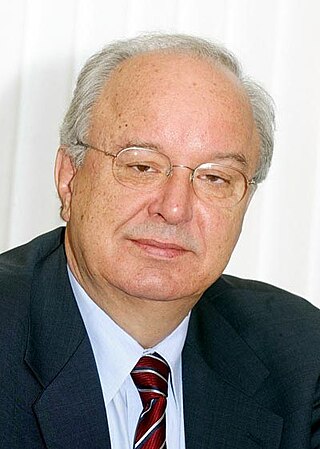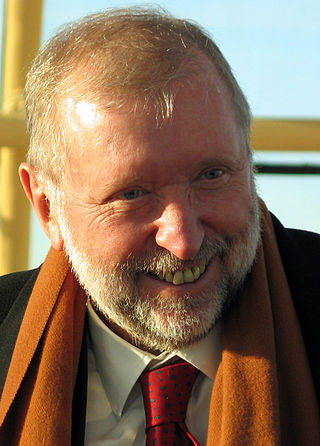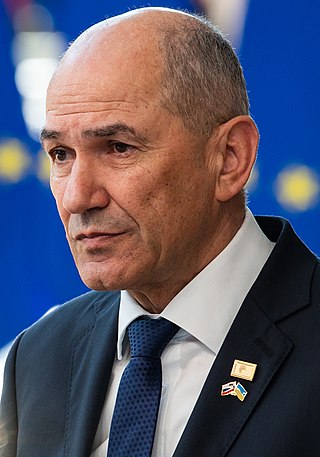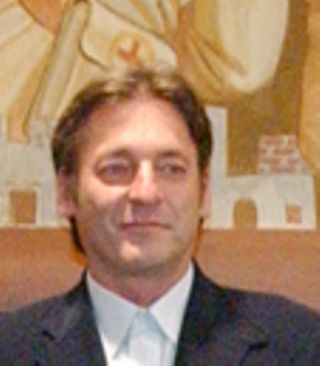The history of Slovenia chronicles the period of the Slovenian territory from the 5th century BC to the present. In the Early Bronze Age, Proto-Illyrian tribes settled an area stretching from present-day Albania to the city of Trieste. The Slovenian territory was part of the Roman Empire, and it was devastated by the Migration Period's incursions during late Antiquity and the Early Middle Ages. The main route from the Pannonian plain to Italy ran through present-day Slovenia. Alpine Slavs, ancestors of modern-day Slovenians, settled the area in the late 6th Century AD. The Holy Roman Empire controlled the land for nearly 1,000 years. Between the mid-14th century through 1918 most of Slovenia was under Habsburg rule. In 1918, most Slovene territory became part of the Kingdom of Serbs, Croats, and Slovenes, and in 1929 the Drava Banovina was created within the Kingdom of Yugoslavia with its capital in Ljubljana, corresponding to Slovenian-majority territories within the state. The Socialist Republic of Slovenia was created in 1945 as part of federal Yugoslavia. Slovenia gained its independence from Yugoslavia in June 1991, and today it is a member of the European Union and NATO.

Janez Drnovšek was a Slovenian liberal politician, President of the Presidency of Yugoslavia (1989–1990), Prime Minister of Slovenia and President of Slovenia (2002–2007).

The Slovenian Democratic Party, formerly the Social Democratic Party of Slovenia, is a conservative parliamentary party; it is also one of the largest parties in Slovenia, with approximately 30,000 reported members in 2013.

The Social Democrats is a centre-left and pro-European social-democratic political party in Slovenia led by Matjaž Han. From 1993 until 2005, the party was known as the United List of Social Democrats. It is the successor of the League of Communists of Slovenia. As of 2022, the party is a member of a three-party coalition government with Robert Golob's Freedom Movement alongside The Left, as well as a full member of the Party of European Socialists and Progressive Alliance.

Andrej Bajuk, also known in Spanish as Andrés Bajuk was a Slovene politician and economist. He served briefly as Prime Minister of Slovenia in the year 2000, and was Minister of Finance in the centre-right government of Janez Janša between 2004 and 2008. He was the founder and first president of the Christian Democratic party called New Slovenia.

Dimitrij Rupel is a Slovenian politician.

Ivan Janša, baptized and best known as Janez Janša, is a Slovenian politician who served three times as a prime minister of Slovenia, a position he had held from 2004 to 2008, from 2012 to 2013, and from 2020 to 2022. Since 1993, Janša has led the Slovenian Democratic Party, which has emerged as the pre-eminent Slovenian conservative party. Janša lost his fourth bid for prime minister in April 2022, his party defeated by the Freedom Movement party.

Borut Pahor is a Slovenian politician who served as President of Slovenia from 2012 to 2022. He previously served as Prime Minister of Slovenia from 2008 to 2012.

Mihael Brejc, also known as Miha Brejc is a Slovenian politician and former Member of the European Parliament.
The Slovenian Intelligence and Security Agency is the main civilian intelligence service of Slovenia and as a government agency is subordinated directly to the Prime Minister of Slovenia. The mission of SOVA as the central intelligence and security service in the Republic of Slovenia is to provide national security. The agency's headquarters are located at Stegne Street in Dravlje, northwest of Ljubljana's centre.

Presidential elections were held in Slovenia in October and November 2007 to elect the successor to Janez Drnovšek. France Cukjati, the President of the National Assembly, called the elections on 20 June 2007.

Jože Pučnik was a Slovenian public intellectual, sociologist and politician. During the communist regime of Josip Broz Tito, he was one of the most outspoken Slovenian critics of dictatorship and lack of civil liberties in SFR Yugoslavia.

Janez Janša is one of the three contemporary artists who changed their names in 2007 to Janez Janša, the name of the Slovenian centre-right politician Janez Janša. He is an editor, theatre and film director, and contemporary performing artist.

Karl Viktor Erjavec is a Slovenian lawyer and politician who served in the government of Slovenia as Minister of Foreign Affairs from 2012 to 2018. He was the president of the Democratic Party of Pensioners of Slovenia, having held the position from 2005 to January 2020 and again from December 2020 until March 2021. He was Minister of Defense from 2004 to 2008 and 2018 to 2020 and Minister of Environment and Spatial Planning from 2008 to 2010.

Milan Zver is a Slovenian politician and Member of the European Parliament (MEP) from Slovenia. He is a member of the Slovenian Democratic Party, part of the European People's Party. He is the Vice-President of the Slovenian Democratic Party. He served as Minister of Education and Sports from 2004 to 2008.

Vasko Simoniti is a Slovenian historian and politician. Between 2004 and 2008, he served as the Minister of Culture of Slovenia, being reappointed in 2020. He is an active member of the Slovenian Democratic Party.

Gregor Virant is a Slovenian politician and public servant. Between 2004 and 2008, he served as Minister of Public Administration in Janez Janša's first government, between 2011–2013 he was Speaker of the National Assembly of Slovenia. He also served as Minister of the Interior and Public Administration in the government of Alenka Bratušek between 2013 and 2014.
The Government of the Republic of Slovenia exercises executive authority in Slovenia pursuant to the Constitution and the laws of Slovenia. It is also the highest administrative authority in Slovenia.
Spomenka Hribar is a Slovenian author, philosopher, sociologist, politician, columnist, and public intellectual. She was one of the most influential Slovenian intellectuals in the 1980s, and was frequently called "the First Lady of Slovenian Democratic Opposition", and "the Voice of Slovenian Spring" She is married to the Slovenian Heideggerian philosopher Tine Hribar.

The 8th Government of Slovenia led by Prime Minister Janez Janša was announced on 3 December 2004. The government was formed after the 2004 Slovenian parliamentary election. It was the first government of Janez Janša, and third centre-right government in the history of the Republic of Slovenia. Slovenian Democratic Party won on the elections 29% of the votes and so became the strongest parliamentary party in the National Assembly. The party nominated Janez Janša as the candidate for the mandatary, who was confirmed by the president Janez Drnovšek. It was one of the most stable governments of Slovenia, which ruled in the times of the greatest economical boom. In 2004–2006, the economy grew on average by nearly 5% a year in Slovenia; in 2007, it expanded by almost 7%. The growth surge was fuelled by debt, particularly among firms, and especially in construction. The price for a boom that veered out of control has been paid in years from 2009 onwards.
















